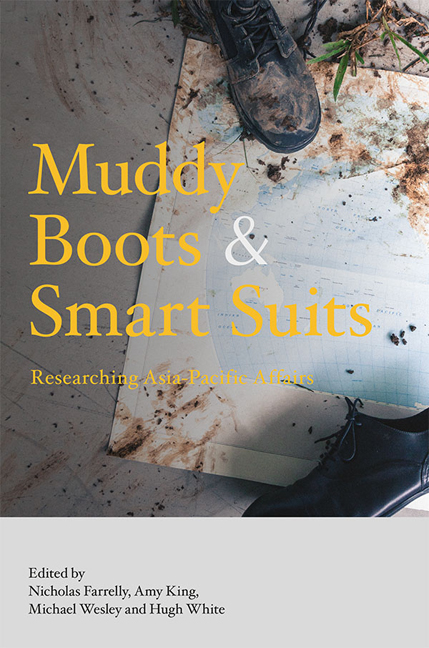1 - Introduction to Research in Asia-Pacific Affairs
Published online by Cambridge University Press: 12 January 2018
Summary
The study of the societies of Asia and the Pacific through Western methods of the humanities and social sciences has always been driven by the dynamics of wealth and power. The European study of Asian and Pacific societies and cultures was central to the colonial enterprise; originally as a fascination with other wealthy and powerful societies, then as part of a Western ideological hegemony determined to demonstrate that the societies of Asia and the Pacific were in decline, in contrast to the Europeans’ own ascendancy (Anderson 1991, 163–64). The study of proud pasts and contemporary societies soon became part of dozens of independence movements across Asia and the Pacific, a vital ingredient of the intellectual emancipation of colonized peoples (Chatterjee 1993). With independence came a Cold War, a desperate zero-sum struggle between capitalism and communism that mandated the need in the rival camps to understand the particular character of the newly independent governments and the societies they ruled in Asia and the Pacific. “Area Studies”, the deep research of Asian and Pacific societies, grounded in extensive fieldwork and advanced proficiency in vernacular languages, was born. Across the Western world, Asia and the Pacific were divided into regions and studied in their own departments. In establishing a national university in 1946, the Australian government mandated that one of four areas of global excellence the new university had to achieve was in Pacific studies (which at the time was intended to include Asian studies) — precisely because of the new and unknown world of international relations that was to be ushered in by the independence of states to Australia's north and east.
The rapid economic ascent of Northeast and then Southeast Asian economies led to renewed attention to Asian societies. Debates arose over the causes of the Asian economic miracle: was it a question of culture, or institutions, or the peculiar legacy of war and colonialism (World Bank 1993; Johnson 1982; Amsden 2001)? These debates drew regional thinkers into the battle lines, as some advocated the catalytic role of distinctive Asian “values” in the stability and success of a lengthening chain of Asian economic success stories (Barr 2005). Others countered that there was in fact nothing distinctive about Asia's economic success; the stunning growth rates were a consequence of “perspiration” (meaning large infusions of investment and low-cost labour) rather than “inspiration” (meaning superior cultural values or institutional design) (Krugman 1994).
- Type
- Chapter
- Information
- Muddy Boots and Smart SuitsResearching Asia-Pacific Affairs, pp. 1 - 10Publisher: ISEAS–Yusof Ishak InstitutePrint publication year: 2017



